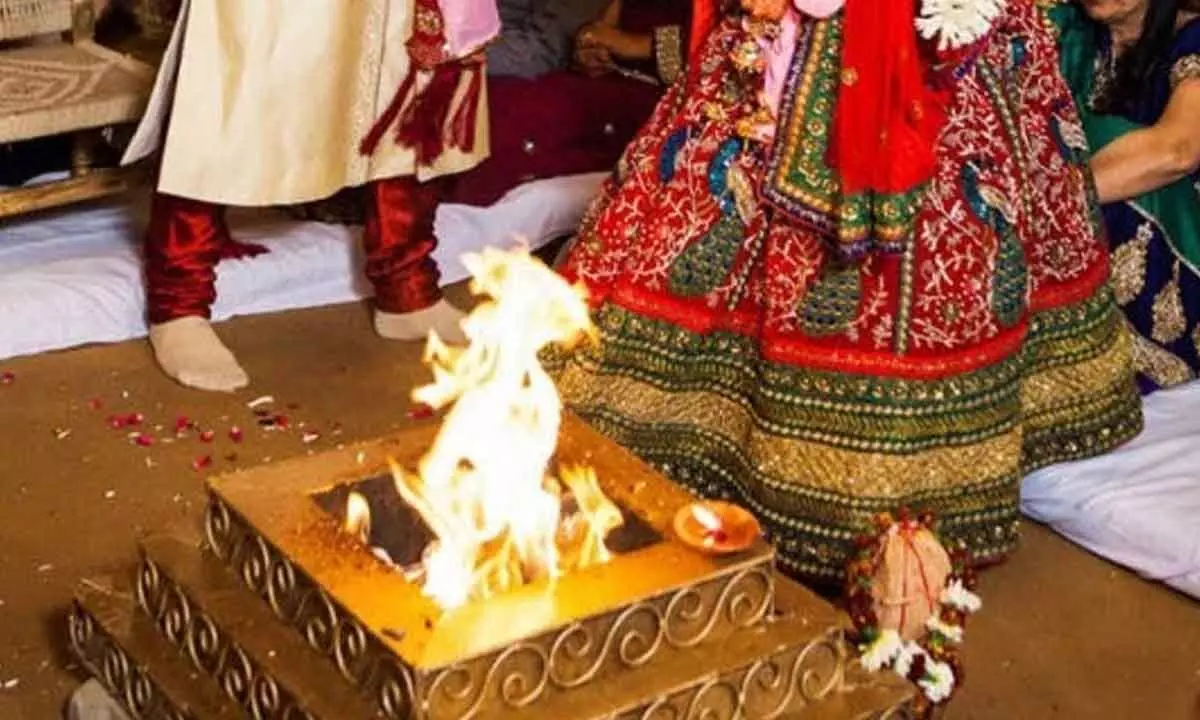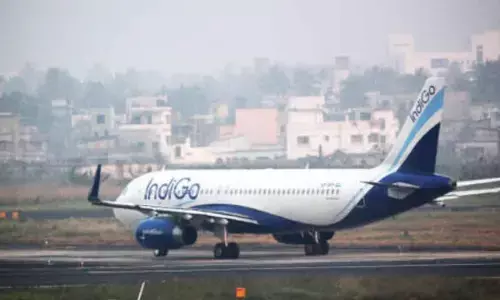A fond collection of recollections

That was when it happened. A cloudburst, of unprecedented intensity and magnitude, hit the area and submerged, not only the town, but many surrounding areas. Bunds of canals and rivers had breached, roads and railway tracks were damaged, power supply had broken down and normal life had come to a grinding halt. Although the exuberance, and the festive spirit that characterise Indian weddings had been somewhat (quite literally!) dampened by the untimely downpour, the mood of the organisers, as well as the guests, remained upbeat
Water in general, and rain, in particular, were the subject matter of an article, in two parts, which appeared in this column some time ago. A reference was made therein to the popular nursery rhyme:
“Rain, rain go away,
Come again another day.
Little Arthur wants to play.
Rain, rain go away”
It was James Howell, the British historian and writer, who added a line to the first English version of this nursery rhyme, which then read as follows:
“Rain, rain, go to Spain,
Never show your face again!”
The added words reflected the mood of the times as,
at that time, Spain and England were rivals at sea, with the Spanish Armada going on.
In my case, however, the rhyme could have been sung, with great appropriateness, at the time of my wedding. My paternal uncle, and father-in-law to be, Dr Gandhi (as he was popularly known, on account of his always wearing clothes made out of khadi and also his free treatment of poor people), had gone to great pains to make extensive and elaborate arrangements for the event. Pandals had been erected in the roads abutting his residence, at Ramachandrapuram town in East Godavari district of Andhra Pradesh, where the marriage was to take place. The preparations were thorough, with even the minutest of details carefully attended to, including the boarding and lodging of the guests arriving from outside, the band and the material required for the rituals. Everything was in place. In fact, on the night before the marriage day, some of my friends and I got on to the stage constructed in one of the Pandals and sang a few songs to the accompaniment of guitar and drums.
That was when it happened. A cloudburst, of unprecedented intensity and magnitude, hit the area and submerged, not only the town, but many surrounding areas. Bunds of canals and rivers had breached, roads and railway tracks were damaged, power supply had broken down and normal life had come to a grinding halt.
Although the exuberance, and the festive spirit that characterise Indian weddings had been somewhat (quite literally!) dampened by the untimely downpour, the mood of the organisers, as well as the guests, remained upbeat. The playful teasing of the bride’s party, by that of the bridegroom’s, so typical of marriages in India, assumed a robust and vigourous form.
Dr Gandhi had made arrangements for water taps all along the four sides of the house, in order to facilitate the washing of hands and feet by guests before and after meals. My paternal uncle Appa Rao took one look at the taps, and remarked that there apparently was to be no shortage of diluted buttermilk!
What with the pandals having become dysfunctional following the rain, and there being little dry ground elsewhere, the rituals of the marriage had, wily nilly, to be performed in a small room at the centre of the house. Most of the guests had to crowd near a window opening out of that room, literally jostling with one another, to get a look at what was going on inside. Photographs taken at that time actually gave the impression that proceedings were taking place inside the cell of a jail!
The situation made one recall the poem ‘To a Mouse’, by Robert Burns:
The best laid schemes o’ Mice an’ Men Gang aft agley,
An’ lea’e us nought but grief an’ pain, For promis’d joy!
In fairness to Dr Gandhi and his team, it had to be conceded that in the event, the wedding was performed with flawless perfection, a masterpiece of improvisation and cooperation with the inevitable to use the expression popularized by Dale Carnegie in his runaway best seller, ‘How to Win Friends and Influence People’.
Soon after the wedding, Usha and I set out for a short honeymoon (no, not Switzerland, and not even Kashmir, as originally planned, thanks to the breakdown in transport and communications) to Chennai. I had just travelled, all the way from Mussoorie, first by train to Delhi, then by flight to Hyderabad and then by road to Ramachandrapuram. As a result, and also on account of the exertion that invariably follows the demanding protocols of a South Indian wedding, I was exhausted. I actually started running a temperature even while in the flight from Hyderabad to Chennai, Snide Comments, that was as a result of my finally tying the wedding knot, were not quite justified!
While the wedding functions were going on, some of my friends, who had come to attend the wedding, had an interesting and amusing experience. Nearby, there was a temple of Sri Jaganmohini Kesava & Gopala Swamy where the idol of the Presiding Deity had both the Lord and his consort, Mohini, on either side. The popular belief is that a visit to the temple will invariably result in a major event occurring in the lives of those who had a ‘Darshan’ of the deity. The rickety van, in which my friends made the trip, broke down in the return journey. One of my friends, Raghavachari, who had a singularly sharp sense of humour, remarked that, although the driver thought the vehicle was running on its wheels, it was actually the passengers, walking on the road (the bottom of the van having dropped off during one of the bumps the van experienced), that made it move! And when the van returned to the marriage venue, my friends applauded, and actually garlanded, the driver, as though in appreciation of his great feat! What was more, the driver, grinning sheepishly, acknowledged the feigned appreciation, much to the amusement of everyone!
Soon after the Chennai visit, I proceeded to Mussoorie for training at the Lal Bahadur Shastry National Academy of Administration (LBSNAA), while Usha left for Vishakhapatnam to continue her studies. We were only able to meet again during the Bharath Darshan programme arranged for the officer trainees by LBSNAA.
The itinerary of the Bharat Darshan group, of which I was a member, included Calcutta where we spent a couple of days. My mother and Usha came over there so that we could spend some time together. They stayed with N.S.K. Swami who was a good friend of my brother-in-law Yechury and was a highly placed executive in the Dunlop company. The talk in my group was that Usha and I looked like school students. And as ours was a consanguineous marriage, some people even mistook us to be siblings! Charan Das Arha often recalls an amusing incident which took place when he, Vivek Agnihotri and T V Anandkumar, all members of our group, dropped in at the Swamys’. Ponni, daughter of the Swamys, asked each one of them what they were doing.
After listening to them, she beamed, saying, “Good! So all of you work for the same company!” Rarely have egos been deflated so quickly and thoroughly!
(The writer is formerly Chief Secretary, Government of Andhra Pradesh)










